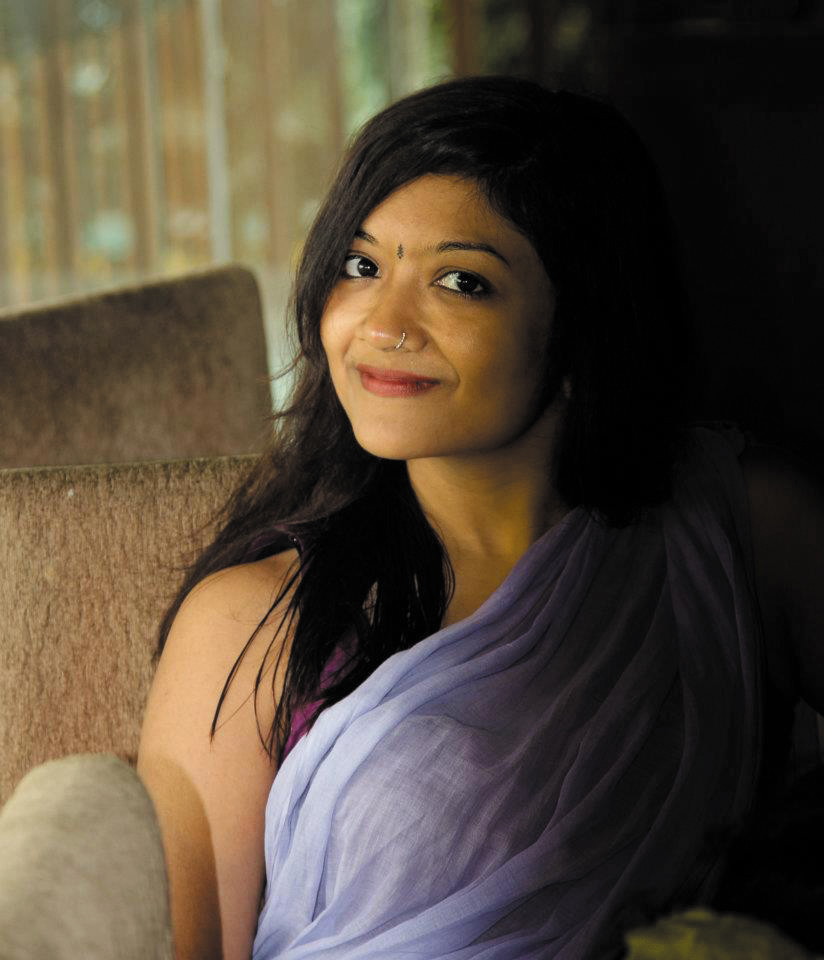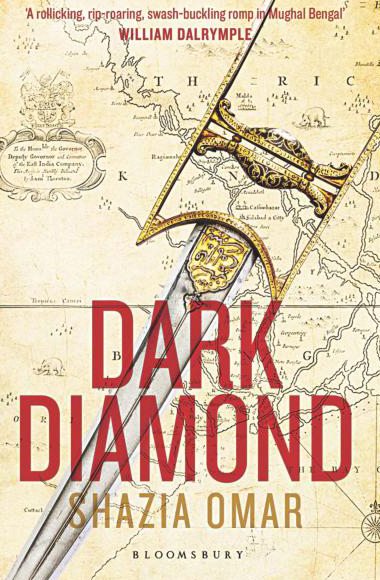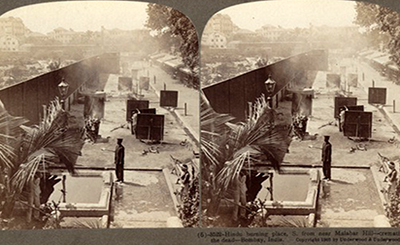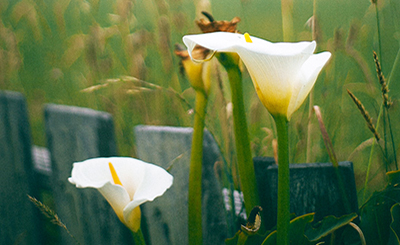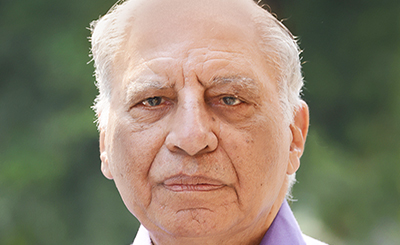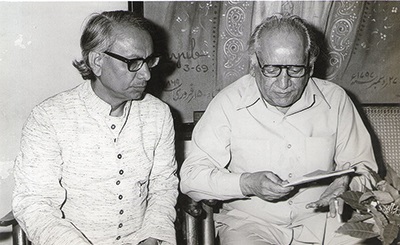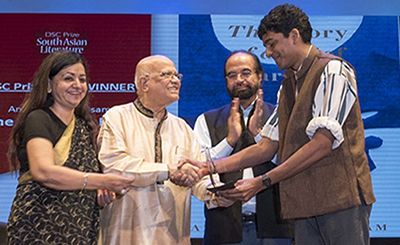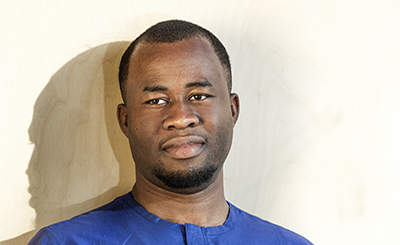Shazia Omar, author of Dark Diamond, says reimaging history is not an act of falsification, but rather, may do more to illuminate the truth by displaying other sides of the story
Shazia Omar is the author of Dark Diamond, published by Bloomsbury, a historical novel that delves into the life of Shayista Khan, the Mughal governor of Bengal. Shazia’s first novel, Like a Diamond in the Sky (Penguin India and Zubaan Books, 2009), was very well received. She has also co-authored a book on wellness called Intentional Smile: A Guide to Positive Living. Excerpts from an interview:
SAAD Z HOSSAIN: You researched primary and secondary sources, I’m sure, but historical fiction (like fantasy/sci-fi) relies heavily on actual world building. What are some of the interesting things you had to make up? Share some details, anecdotes or problems you had to face for a plausible re-creation of a historical time. Also the nitty-gritties of world building: use of magic, physics of magic, use of mythology etc.
SHAZIA OMAR: I spent five years writing this book, half of which was research. Not much is recorded about Shayista Khan. I found many details on the period — the food, the clothes, the architecture — but little on the characters in his life, even less about the women. I had to make up their personalities based on what I thought their motives might be.
To stay within the realm of the plausible, I tried to find other women, contemporaries, whom I might model their personalities on. For example, one of my characters, Madeline, journeys from France to Bengal. She is fictional, but I found stories of women who made this maritime voyage during the 17th century, and so this was not entirely unreal. Those women were usually the wives of the ship captains, and this is what gave them protection against the men on board. Madeline was alone, so I had to give her a personality that could stand up to the pirates on her own.
Very little of the ruins of Bibi Champa’s mausoleum next to the Chota Katra remain today… and less is written about her. Again, I had to make her up. But I first found evidence of empowered women educators, Nur Jahan being an example, who predated her, which made it plausible that she too might be fighting to educate girls in school.
In terms of magic, I stayed within the space of my story, the Mughal context. As such, Islamic wizardry, Sufi powers, djinn and a pir who dabbles in black magic exist alongside tantric yogis and the Goddess Kali. It was fun mixing Islamic and Hindu brands of magic, and it felt appropriate because the cultural fault lines were not as distinct as they are today; the two existed side by side very vibrantly at that time.
SAAD Z HOSSAIN: Is there a clear line between fact and fiction?
SHAZIA OMAR: History is a story written by the victors, and by the male victors — his story. The female voice, the subjugated voice, is rarely heard. I was representing a “subaltern” hero. The Indian narrative, mostly written in Delhi or by the British, does not portray Shayista Khan as a hero. The most common anecdote is how he lost three fingers in a fight with Shivaji, Hindustan’s great hero. He comes across as a weak and wimpy man. But then, Shayista was a brilliant warlord and a shrewd business man, in today’s terms, a billionaire. Under his rule, Bengal reached its zenith, its golden age; it was the capital of the world in culture and commerce. This narrative is buried beneath the rubble of time, so it was fun to resurrect it for a story from “the other side”. Even newspapers carrying yesterday’s stories get facts wrong, are affected by perception, depend on whose side you’re writing from. As such, I believe reimaging history is not an act of falsification, but rather, may do more to illuminate the truth, by displaying other sides of the story, other possibilities that may have been.
SAAD Z HOSSAIN: On the flip side, during the course of writing this, what interesting historical tidbits have you picked up which are remarkable?
SHAZIA OMAR: I learnt a lot about Bengal’s past. Our city has so many layers to it. For example, the Portuguese brought pineapples and cashews to Bengal. We were the biggest gun powder producers. We dressed the world with our textiles. Hatirjheel is named after Shayista Khan’s elephants that used to be bathed there…
I was also surprised to learn that most of our enemies are the same as the ones that plagued Shayista Khan. The foreign corporation bleeding our garments girls dry with the support of wealthy factory owners began back in the 17th century when the East India Company sourced muslin, silk and cotton from local zamindars who exploited the artisans making the cloth. Chittagong and Sandwip were centres of slave trade just as they are hot with human trafficking today. The bigoted ulema tried to oppose free thinking just as some members do today.
Examining our history can be a way of learning about our present, but the real question is, are we learning from our past mistakes? This is an important aspect of history. I hope teachers make this book part of the syllabus for Bengali students.
SAAD Z HOSSAIN: How do we avoid adding our values to historical characters? For example, modern sexual values, ideas on tolerance, racism, sexism, attitudes towards children.
SHAZIA OMAR: It is difficult not to adopt a modern thought structure when writing historical fiction because we are writing for a modern mind. If we stayed true to the thinking of the past, our most progressive characters might seem traditional; path-breakers might seem like sheep. Thus, to depict a character as a hero, or a “good guy/bad guy” to a modern audience, the modern value system needs to be kept in mind.
SAAD Z HOSSAIN: Where do you want to go with this book?
SHAZIA OMAR: Well, it is a sort of epic adventure. I think it is perfect for the silver screen and I’m hoping Aamir Khan will agree to play Shayista.
SAAD Z HOSSAIN: Tell us a little bit about your two other books.
SHAZIA OMAR: Intentional Smile: A Girl’s Guide to Positive Living (Bloomsbury, 2016) is a mind, body, spirit book about staying happy and healthy. It is based on my experience as a yoga instructor and a social psychologist, and a working mother who has struggled with chronic depression. My co-author, Merrill Khan, is a school counselor and a life coach. Depression is a taboo topic in Dhaka. No one talks about mental illness, though many people suffer it, knowing or unknowingly. I wanted to open a space for such discussions. I am really excited about this book because it explores various eastern techniques of healing and tools for staying positive that I find completely lacking in the cultural dialogue of Bangladesh. Our ancient wisdoms were delegitimised by colonial powers and are now being appropriated or re-legitimised by science, leading to alternative “new age” lifestyles in the West. These techniques are important for our girls and women, especially in this fast-paced world where we often have to juggle several identities and many responsibilities at once.
Like a Diamond in the Sky (Penguin-Zubaan, 2009) is about a heroin junky who is trying to find redemption. I wrote this story based on my conversation with many recovering addicts. Addiction is a taboo topic in Bangladesh. As a result, many youths fall into addictive patterns without even realising it. Parents and teachers also know very little and see addiction as a crime rather than an illness. I wanted to address some of these misconceptions and shed some light on the dark underbelly of Dhaka.
SAAD Z HOSSAIN: Describe your writing aesthetic.
SHAZIA OMAR: In my first novel, Like a Diamond in the Sky, my protagonist was a young junkie who loved the rock ’n’ roll of America to write this. I was inspired by the beatniks, especially Jack Kerouac. My protagonist is named “Deen” after Dean Moriarty, and as in “deen vs duniya” ie, an allusion to the battle between the spiritual and physical dimensions of life. I tried to simplify and pare down my sentences and paragraphs as much as possible. I read a lot of Hemingway, Bob Dylan, Fitzgerald and the Beatniks.
The protagonist of Dark Diamond, on the other hand, is a Sufi warrior and swashbuckling hero. I allowed my writing to be inspired by Sufi poets, but also kept characters like Indiana Jones and Luke Skywalker in mind.
SAAD Z HOSSAIN: Who are your favourite writers?
SHAZIA OMAR: I love Garcia and Pablo Neruda and the Sufi poets for their sensual lyrics. I love Arundhati Roy because she is so brave, discerning and counter-culture. I love Jhumpa Lahiri for her insights into relationships. I devoured all the Game of Thrones novels one summer. I read a lot of Tagore (in translation) and Zen Master Thich Nhat Hanh. I enjoyed reading Mohsin Hamid, Mohammad Hanif and Daniyal Mueenuddin. Among Bangladeshi writers writing in English, I love Saad Z. Hossain, Srabonti Narmeen Ali, Tahmima Anam and Mahmud Rahman’s works.
